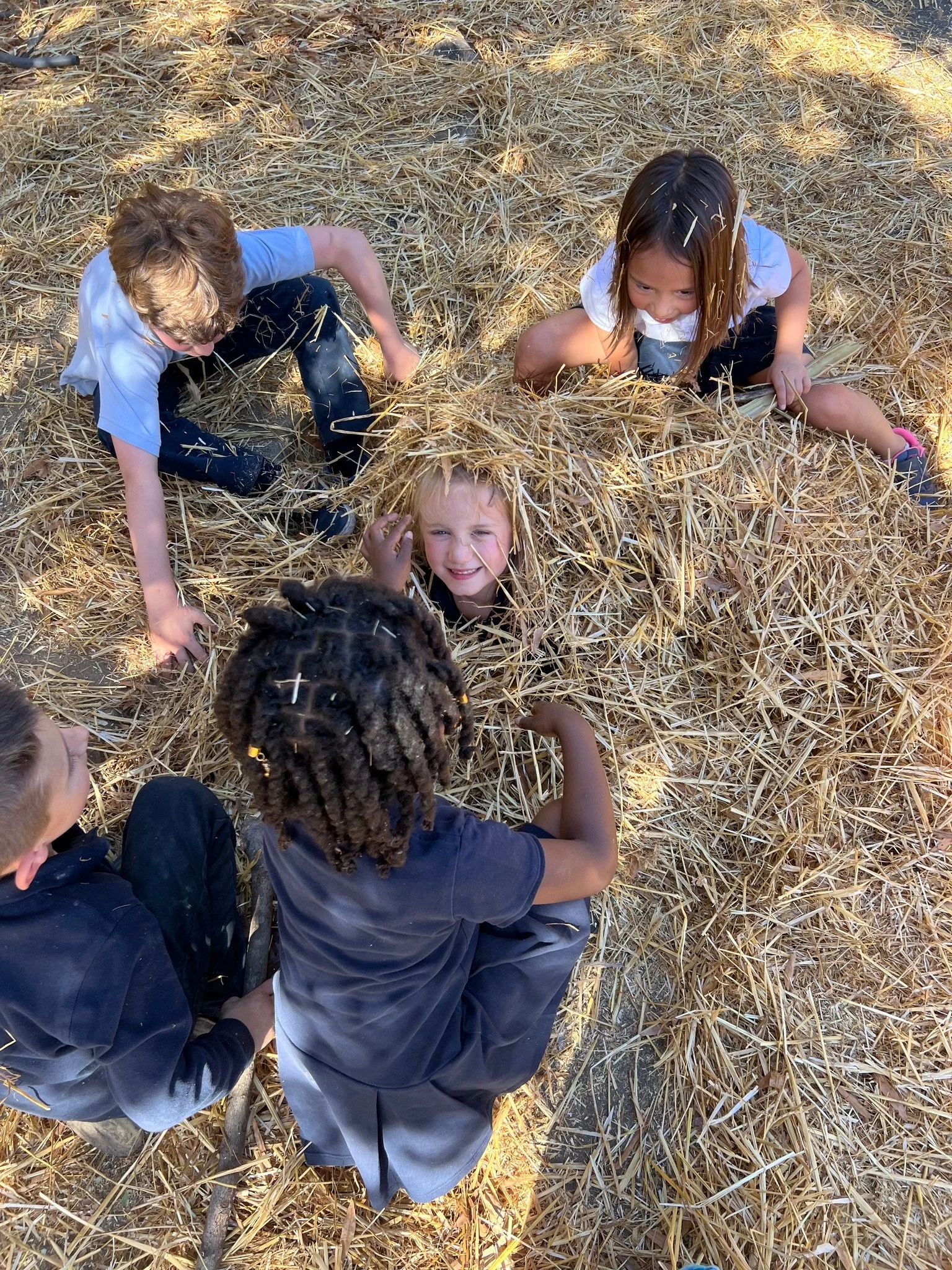Trees vs. Tablets
Have you seen Old Enough, a reality TV show on Netflix? The entire premise of this show is sending young children (between the ages of two to five) to run errands on their own. There’s a camera crew following along to witness the triumphs and downfalls that ensue. On one hand, it’s impossibly endearing and I would dare anyone to watch this show and NOT root for the kiddos braving the big world around them. On the other hand, it’s slightly terrifying to think of preschool-aged children navigating busy intersections and walking in public without an adult.
After seeing it pop up in my Netflix recommendations, I quickly became emotionally invested in the show. Then I became really intrigued after learning it’s been running for 30-plus seasons in Japan! Japanese students, by the way, outperform American students with impressive gusto on PISA scores when they reach high school. I note with chagrin that U.S. scores have dropped since 2018 while Japanese scores rose. This may have NOTHING to do with what I’m considering today, but either way – I’m just sharing the Japanese are onto something. Whatever they’re doing, it certainly leads to a strong international ranking.
One of the things I often think about at Alexandria Classical Christian Academy (ACCA) is what level of independence is appropriate to give children. Especially, when our top responsibility is to keep children safe. It’s because of this commitment that we’ve approached the two matters with a bit of independent thinking in the current school landscape: technology and outdoor time.
Device correlation in schools is a trending teaching topic. If you’re interested in educational technology, you can explore some fascinating studies about its merits in schools. For example, over 45% of public schools in America report having a computer for each student according to the U.S. Department of Education, and those numbers rise when you consider private schools. In the same report, over 70% of public schools said their teachers used technology for activities normally done in the classroom to a moderate and large extent.
Consider what sorts of things children are exposed to on their devices. Obviously, schools and teachers have an obligation to do all they can to reasonably protect their students while utilizing online platforms. Yet even so, America is facing a rising and horrific reality that the Wild West of the internet is an easy way to target children. For reference, see what the National Center for Missing and Exploited Children has shared.
THEN, if you can stick with me a bit longer, think about the way that heavy online device usage impacts so many things for children: mental health, attention span, neurological development, and more. If you’re interested in this you might want to join me in my pedagogical crush on Dr. Willingham (UVA professor and researcher who believes teachers should understand neurological development) and read Why Don't Students Like School?
From my perspective as an educator, there are two distinct forms of safety for our children: physical safety and mental/emotional/spiritual safety. We know that our nation is dealing with an incredible epidemic of poor emotional and mental health.
At ACCA, we spend a lot of time outdoors – it’s the time we save by not using devices during the day. We talk intentionally about how to climb trees with common sense safety practices, we teach students to identify poison ivy, and we teach them what to do if a stranger encounters them in the woods. We believe that children are capable of so much real and incredible work.
I’ll admit it was a risky endeavor in some ways, to start a new school in the Alexandria landscape that enthusiastically decries most educational technology, but our families have stuck with us. And their children, our students, are learning and growing so much. They often need second breakfasts because they exercise so much by mid-morning.
“They read beyond their grade level, engage in computation beyond grade level, and end every day slightly covered in dirt – the good, clean kind of dirt!”
Parents often ask me about this general topic. We have managed (somehow! Praise the Lord and thanks to some long-suffering parents and teachers!) to create this world at school where children can play outside with friends and build forts and climb trees to their hearts’ content. But that’s not true for the general Alexandria landscape.
You may live on a busy city block, or in a neighborhood where people talk if they see a child playing outside without an adult. Other times, kiddos are resistant to playing outside if they can play Roblox or text with friends instead. These are common challenges.
If you’re interested in encouraging your children to play outside more and get off devices, here are a few things that might help:
If you live in a slightly more urban Alexandria neighborhood, consider giving your child a “dumb watch.” Let them walk around the block on their own and back – even better if they can do it with a friend! Consider the Cosmo watch as a great starting point that allows you to track them safely but allows them outdoor time.
Visit a fun toy store and pick up some exploration-themed toys or outdoor toys. Chalks, jump rope, and compasses never get old. However, some non-toys are often huge hits: colanders, shovels, rope (ACCA students love paracord), and sticks – you can do just about anything with those.
I’ll be talking more about this at our Open Houses during the fall. If this sounds like the type of education that might be a good fit for your family, I’d encourage you to register for one of our events here.
SEE ALSO: Is Your Child Prepared for the Arena?







